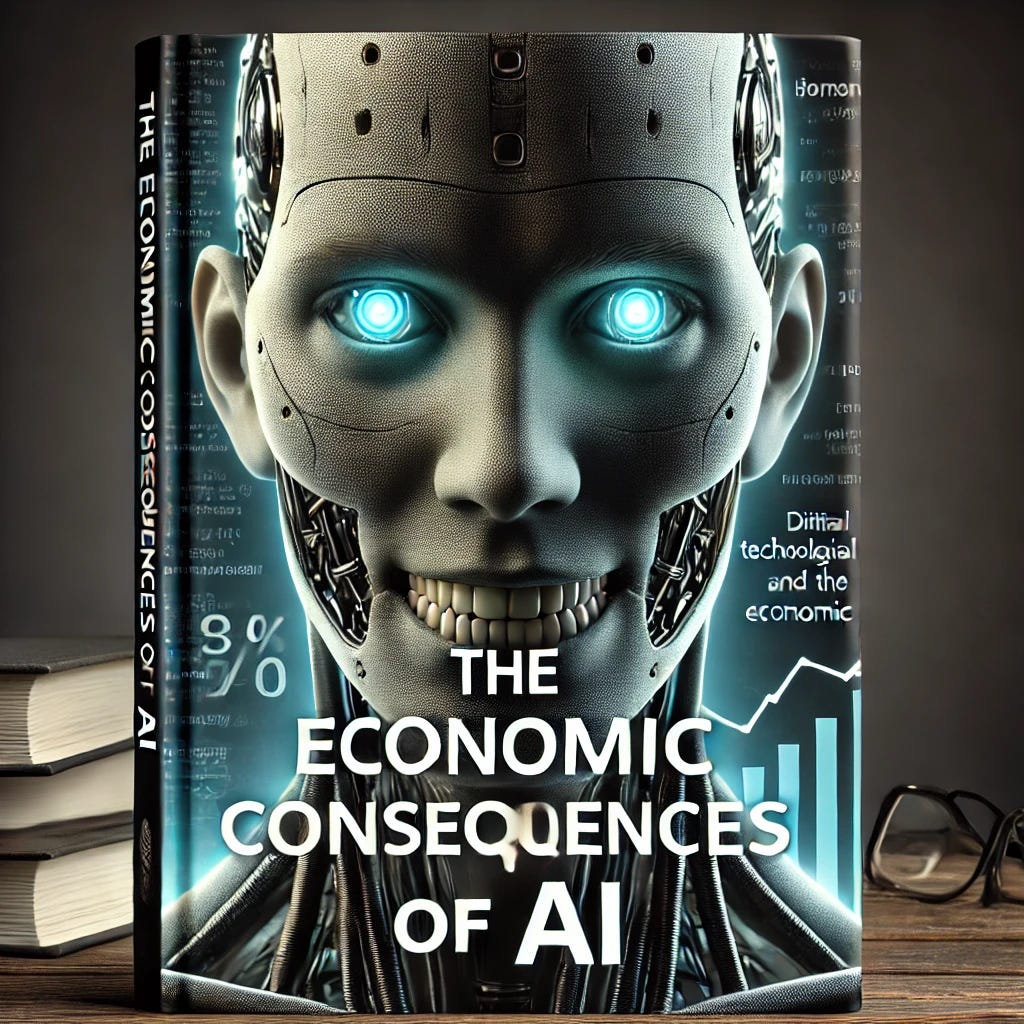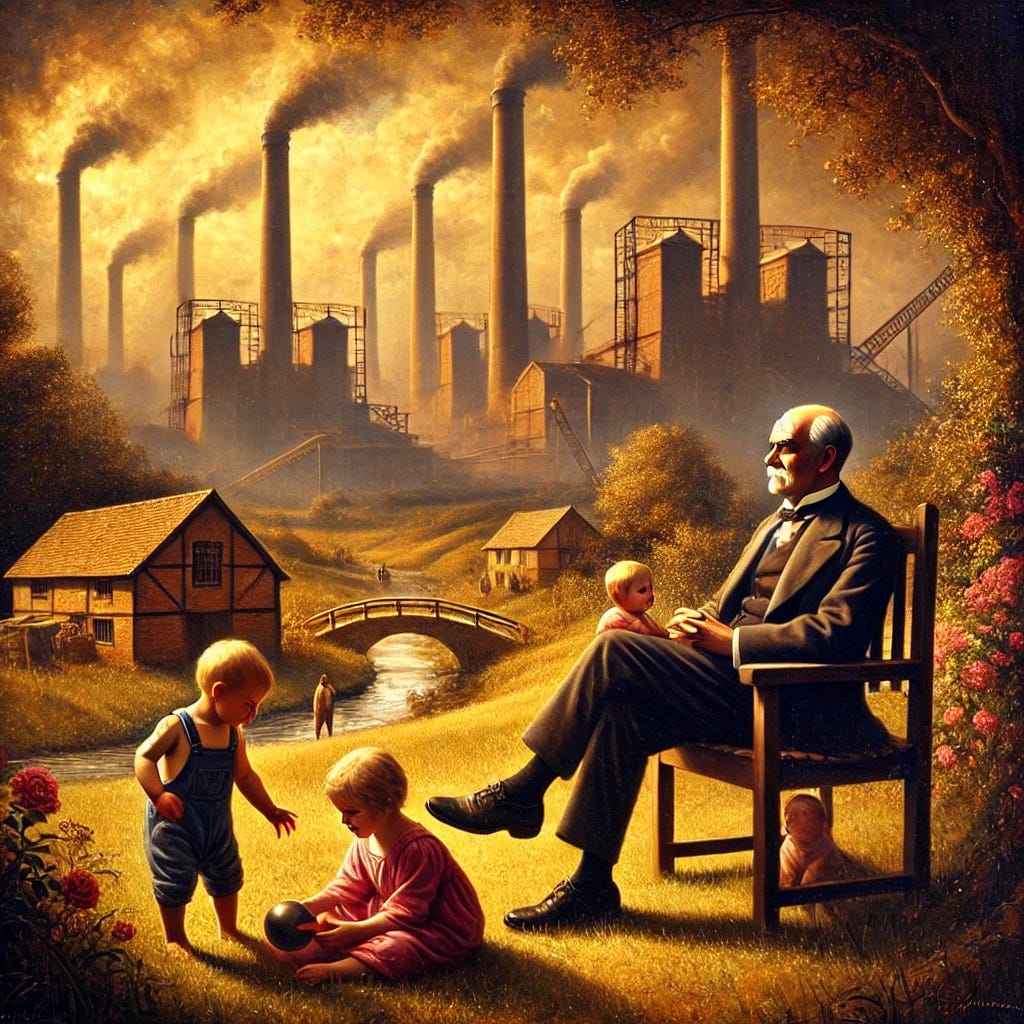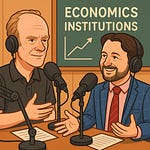During a prior podcast with Lachlan I took the conversation on a massive tangent, to ask about structural shocks and the role of government. We took that out for our chat, but I thought it was fun - so I’ve attached that conversation here.
However, I’m writing a post below to go alongside our pod - as I think our discussion raised some fun points that are good to listen to, but I just wanted to add a bit more.
What I do want to discuss today is a theme I have in mind that links together the economic consequences of AI, an essay from Keynes, and why a strong safety net is a central part of how we manage our path to prosperity.
I think this type of discussion is especially important as we see the US rip up its own social contract in a way that I don’t believe anyone truly sees as just - but many may not have thought it through.
To prevent that happening here we should be explicit in talking about it.
Strap in, between the pod and a long post there is a lot here - hence why we’ve put it up on a Sunday so you can enjoy it over coffee and whatever substitute for eggs you’ve been able to find.
tl;dr Technological change will boost the opportunities of our children and grandchildren, but we need to be mindful of how we support those who might lose out now. We have benefited from the costly transitions taken on by the generations before us, and have the same responsibility to those who struggle now and those who would benefit in the future.
You are just making more ChatGPT images aren’t you
Of course! I’m a big fan of AI tools - or what I currently view as an advanced and expanded form of Google Search.
So how is AI functioning in a labour market sense? If I want to achieve a task - say write a blog post - there are a set of smaller tasks I need to achieve.
Come up with an interesting question and novel insights that an audience of passionate and thoughtful Australasians would want to consume.
Structure the narrative.
Write it in a readable way.
Put in some images (graphs and pictures) that help the flow and narrative.
At present I only use AI for pictures - so my failure to achieve the other tasks is purely on my own shoulders.
As a result, I come up with ideas and narratives, pull data and graph it, and write up the post myself - and then with a few small prompts I add some colourful pictures. This saves me a lot of time, and hence is a complement to my production of blog posts, by increasing the quantity and quality of posts my labour can produce in a given time … if I was paid on this basis this would increase my wages.
But there might come a day when I could train an LLM on both my historic blog posts and the news, and ask it to write posts in my style on these topics. In this way you could remove my labour from the blog process entirely, and just engage with LLM Matt - this would substitute me out of the blog process. If I was paid to produce this my wage would be determined by the cost of this substitute - which would likely reduce my wages or make me unemployed.
The complementarity and substitutability of our labour from this capital is important for understanding the role of AI. The concern of Daron Acemoglu is that this will be relatively substitutable, and thereby lead to unemployment, labour market disruption, and lower wages.
Ohhh no - time to destroy the machines
We’ve heard these stories before. If you want a long history I have a series of posts from a decade back on factor shares that you can have a little look at (Intro, Classical, Marxian, Neo-Classical, Marshallian, Post-Keynesian, Neo-Ricardian, GE/Modern) - as I feel this captures the way a lot of these debates moved through time.
And I’m sure you’ve heard plenty of examples from the industrial revolution. But I want to do something different - I want to go to a period that is a lot more relatable for today, the Great Depression and the rise of modern authoritarianism.
And to do that I need to introduce an essay we chat about in the audio about - The Economic Possibilities for our Grandchildren by Keynes. This is also pertinent because we are the grandchildren that were the theme of this essay and its accurate predictions.
The context here is that, in 1930, the preveiling view was that the unemployment being experienced was “technological” - although exacerabated by fiscal and monetary policy that was too tight. This was the end of a historically unprecidented improvement in capital accumulation and technological know-how - and Keynes was relying on the lessons of the earlier Long Depression to understanding this.
For I predict that both of the two opposed errors of pessimism which now make so much noise in the world will be proved wrong in our own time; the pessimism of the revolutionaries who think that things are so bad that nothing can save us but violent change, and the pessimism of the reactionaries who consider the balance of our economic and social life so precarious that we must risk no experiments.
This initial quote from the piece highlights that the public response to such change and uncertainty is a mix of fear and violent revolution. The experience of COVID and the life changing disruptions since have had the same effect on our mental state - and his warning to think carefully about technical change and how we deal with shocks is important.
This means unemployment due to our discovery of means of economising the use of labour outrunning the pace at which we can find new uses for labour. But this is only a temporary phase of maladjustment. All this means in the long run that mankind is solving its economic problem. I would predict that the standard of life in progressive countries one hundred years hence will be between four and eight times as high as it is. There would be nothing surprising in this even in the light of our present knowledge. It would not be foolish to contemplate the possibility of afar greater progress still.
But for our thoughts on AI this quote gives the key point - technological progress will increase the material living standards of people in society, but we require political agreeement to go through that transition.
Under given structures and sets of skills, large technological change can generate a period where prior capital (both physical and embedded in our human knowledge and skills) is stranded. However, once we are able to retrain and adjust to provide our work time to the areas where we are relatively more effective than the machines, as a society we will be wealthier and better off.
And the prediction of a 4-8x increase in material abundance was right - GDP per capita has increase 5+ times over in the past 100 years.
But this requires the transition happens. To take things a step further, making sure society does not swing to extremism during the transition may require that we identify and support those who struggle with it - and that we communicate these risks in a way that is trusted (Keynes comment that economists will hopefully be seen as boring and trustworthy as dentists - to any dentists this is a complement).
But this time is different
There is a clear matter to keep in mind here. If we are saying there is no comparative advantage left for humans we are equivalently saying there is no scarcity.
If there is no scarcity then lets be blunt - why are we allowing poverty and want at all? Why as a community do we allow poverty and want? To quote Keynes again:
All kinds of social customs and economic practices, affecting the distribution of wealth and of economic rewards and penalties, which we now maintain at all costs, however distasteful and unjust they may be in themselves, because they are tremendously useful in promoting the accumulation of capital, we shall then be free, at last, to discard.
So now say that we do have scarcity, but the structure of labour and capital markets is such that the return of activity becomes very concentrated - and those that have not can neither earn labour market returns or accumulate capital in a why to benefit from this. The solution is not to gut the welfare state as the US is, but to strengthen and extend it to share the benefits of technological change.
Even with scarcity it is important to reflect on where value comes from when considering technological progress. If you were born 200 years ago you would not earn nearly as much as you do now, if you were born 50 years ago you wouldn’t either - irrespective of the lies propogated by authoritarians and contrarians to make you feel like a victim.
The growth in incomes since the industrial revolution means that you receive more solely due to the luck of how and where you are born. You were given the opportunity to earn more, and your efforts rewarded you with more, but this does not imply it was just you that created this.
As a group we have learned to organise better. We have learned more about how the world works. Prior generations have constructed buildings and other forms of capital - which we use to produce things to consume ourselves.
We have an obligation to both pay this forward (build for our grandchildren) and support those who had bad luck (those who experience poverty).
If you are in a median income family on low six figures then life can feel hard - it is difficult to keep up with the Joneses, hard to meet the expectations of those around you, and difficult to deal with the shocks that life gives you. But the shocks we face are less than those before us, or those who truly struggle with low incomes now.
Making ourselves the victim and not seeing that we are truly fortunate - and have a responsibility to share that fortune with those that have less - is the reason why the media is filled with hate, and democratic institutions are rotting before our eyes. None of us should feel individually responsible for the whole world, but we should feel obligated to have empathy for others and take on actions consistent with that.
Like Keynes did in 1930, we should be asking ourselves how we can build a world where our grandkids will have more and where we have done our best to support our brothers and sisters when they are facing their hardest trials. Not demanding that this world does more for us.


















Share this post